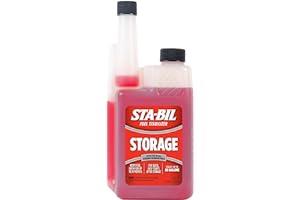Best Selling Fuel Additives
Fuel additives are chemicals that are added to gasoline or diesel fuel to improve its performance or extend its shelf life. They can do this by preventing the formation of harmful deposits in the engine, improving fuel economy, or protecting the fuel system from corrosion.
Links to Best Selling Fuel Additives
Types of Fuel Additives
There are many different types of fuel additives available, each with its own unique benefits. Some of the most common types include:
- Corrosion inhibitors: These additives help to protect the fuel system from rust and corrosion.
- De-icers: These additives help to prevent fuel from freezing in cold weather.
- Ethanol stabilizers: These additives help to prevent ethanol from separating from gasoline, which can cause engine problems.
- Fuel economy improvers: These additives can help to improve fuel economy by reducing the amount of fuel that is wasted.
- Gasoline detergents: These additives help to remove deposits from the fuel system, which can improve engine performance and fuel economy.
- Methanol inhibitors: These additives help to prevent methanol from damaging the fuel system.
- Rust inhibitors: These additives help to protect the fuel system from rust.
How to Use Fuel Additives
Fuel additives are typically added to the fuel tank before refueling. The amount of additive that is needed will vary depending on the type of additive and the size of the fuel tank. Always follow the manufacturer's instructions for use.
Benefits of Using Fuel Additives
Fuel additives can offer a number of benefits, including:
- Improved fuel economy
- Reduced emissions
- Prevention of engine damage
- Extended fuel shelf life
When to Use Fuel Additives
Fuel additives can be used at any time, but they are especially beneficial in the following situations:
- When using old or stale fuel
- When driving in cold weather
- When using ethanol-blended gasoline
- When driving a vehicle with a high-mileage engine
Safety Precautions
When using fuel additives, it is important to follow the manufacturer's instructions for use. Some fuel additives can be harmful if they are not used properly.
Here are some safety precautions to keep in mind when using fuel additives:
- Always read and follow the manufacturer's instructions before using a fuel additive.
- Do not mix different types of fuel additives.
- Do not use fuel additives in engines that are not designed for them.
- Do not use fuel additives in vehicles that are running.
Conclusion
Fuel additives can be a valuable tool for improving the performance and longevity of your vehicle's fuel system. By following the tips in this article, you can safely and effectively use fuel additives to get the most out of your fuel.
